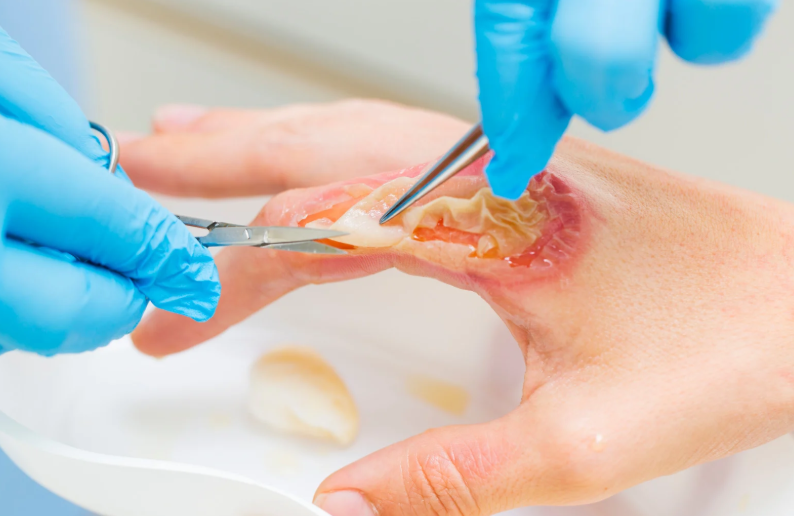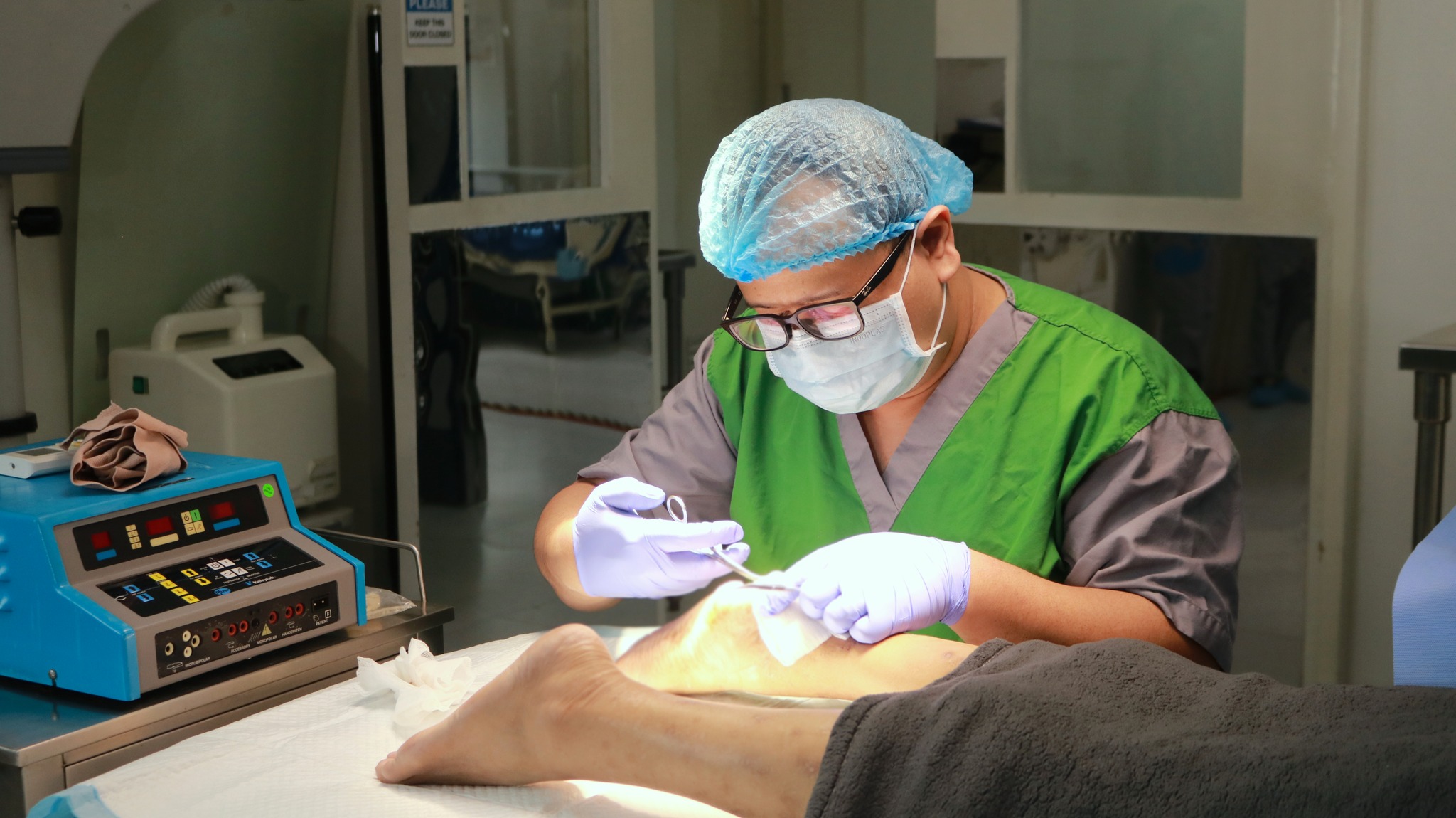Carpal Tunnel Syndrome (CTS) is a common condition that can significantly impact daily activities, causing pain, numbness, and weakness in the hand and wrist. For those experiencing persistent symptoms, consulting a hand surgery doctor is crucial. This medical professional can accurately diagnose the condition and recommend effective treatment options, including non-surgical and surgical solutions. In this article, we’ll explore how a hand surgery doctor plays a vital role in managing and treating Carpal Tunnel Syndrome.
What is Carpal Tunnel Syndrome?
Carpal Tunnel Syndrome is a condition caused by the compression of the median nerve, which runs through a narrow passage in the wrist called the carpal tunnel. This compression can result in symptoms such as tingling, numbness, pain, and weakness in the hand, particularly in the thumb, index, and middle fingers. The condition is often caused by repetitive movements or prolonged pressure on the wrist.
If left untreated, Carpal Tunnel Syndrome can lead to permanent nerve damage, affecting one’s ability to grip objects and perform fine motor tasks. A hand surgery doctor is essential in diagnosing and treating CTS to prevent long-term complications.
When Should You Consult a Hand Surgery Doctor for CTS?
It’s important to recognize the early signs of Carpal Tunnel Syndrome and consult a hand surgery doctor as soon as symptoms appear. Common signs include frequent numbness or tingling sensations, particularly at night, and pain that radiates from the wrist to the hand or arm. If these symptoms begin to interfere with everyday tasks, such as typing, driving, or holding objects, it’s a clear indication to seek professional help.
Early consultation with a hand surgery doctor allows for a timely diagnosis and the possibility of non-surgical treatments. Waiting too long can lead to nerve damage, which may require more invasive intervention.
The Role of a Hand Surgery Doctor in Diagnosing Carpal Tunnel Syndrome
When you visit a hand surgery doctor, they will perform a thorough evaluation to determine the underlying cause of your symptoms. This process often includes a detailed medical history review, physical examination of the hand and wrist, and possibly diagnostic tests like nerve conduction studies, which assess the function of the median nerve, or imaging tests like ultrasound.
A hand surgery doctor may also conduct specific tests, such as the Tinel’s sign or Phalen’s test, to provoke symptoms and confirm a Carpal Tunnel Syndrome diagnosis. Accurately diagnosing CTS is essential for determining the appropriate treatment plan and ensuring the best possible outcome for the patient.
Non-Surgical Treatment Options for CTS
In many cases, a hand surgery doctor will recommend non-surgical treatments, especially if the symptoms are in the early stages. Common non-surgical options include wrist splints, particularly worn at night, which help keep the wrist in a neutral position and relieve pressure on the median nerve. Nonsteroidal anti-inflammatory drugs (NSAIDs) can also help reduce pain and inflammation.
Physical therapy may also be prescribed by the hand surgery doctor, focusing on stretches and exercises to improve wrist strength and flexibility. In some instances, corticosteroid injections may be used to reduce inflammation in the carpal tunnel.
These non-surgical treatments can be highly effective in relieving symptoms, but if they do not provide relief, a hand surgery doctor may suggest surgery to address the issue more directly.
Surgical Treatment for Carpal Tunnel Syndrome
For patients who experience severe or persistent symptoms, surgical intervention may be necessary. The most common surgical procedure for Carpal Tunnel Syndrome is carpal tunnel release surgery, where the ligament pressing on the median nerve is cut to relieve the pressure. This surgery can be performed through open surgery or endoscopic surgery, which uses smaller incisions for a less invasive approach.
A hand surgery doctor will discuss the most appropriate surgical technique based on the severity of the condition and the patient’s overall health. Post-operative care is crucial for optimal recovery, and the hand surgery doctor will provide guidelines for pain management, activity restrictions, and rehabilitation.
How a Hand Surgery Doctor Improves Long-Term Outcomes for CTS Patients
A skilled hand surgery doctor not only performs the necessary procedures to treat Carpal Tunnel Syndrome but also provides valuable guidance on preventing future issues. Following surgery, a hand surgery doctor may recommend rehabilitation, which can include physical therapy to restore strength and mobility to the wrist and hand. These rehabilitative practices are important for achieving the best long-term outcomes and preventing a recurrence of symptoms.
Additionally, a hand surgery doctor will monitor your recovery progress, offering advice on how to avoid activities that may strain the wrist, and provide ergonomic suggestions for work or leisure activities to reduce stress on the wrist.
Why Choose a Specialist Hand Surgery Doctor?
Choosing a specialist hand surgery doctor ensures you receive the most effective and comprehensive care for Carpal Tunnel Syndrome. Unlike general practitioners, hand surgeons have extensive training in diagnosing and treating conditions of the hand and wrist. They possess a deep understanding of the anatomy of the hand and the intricacies of nerve compression disorders like CTS.
Consulting a hand surgery doctor can result in better outcomes, as they bring specialized expertise in both conservative and surgical treatment options for Carpal Tunnel Syndrome. Their focus on hand and wrist health ensures that you receive the best care possible, minimizing the risk of complications and improving recovery times.
Takeaway
Carpal Tunnel Syndrome can be a debilitating condition, but with the right care and treatment from a hand surgery doctor, relief is possible. From accurate diagnosis to effective non-surgical and surgical treatments, the role of a hand surgery doctor is crucial in helping patients regain hand function and quality of life. If you are experiencing symptoms of CTS, don’t hesitate to consult a qualified hand surgery doctor to discuss your treatment options and start the journey towards recovery.










